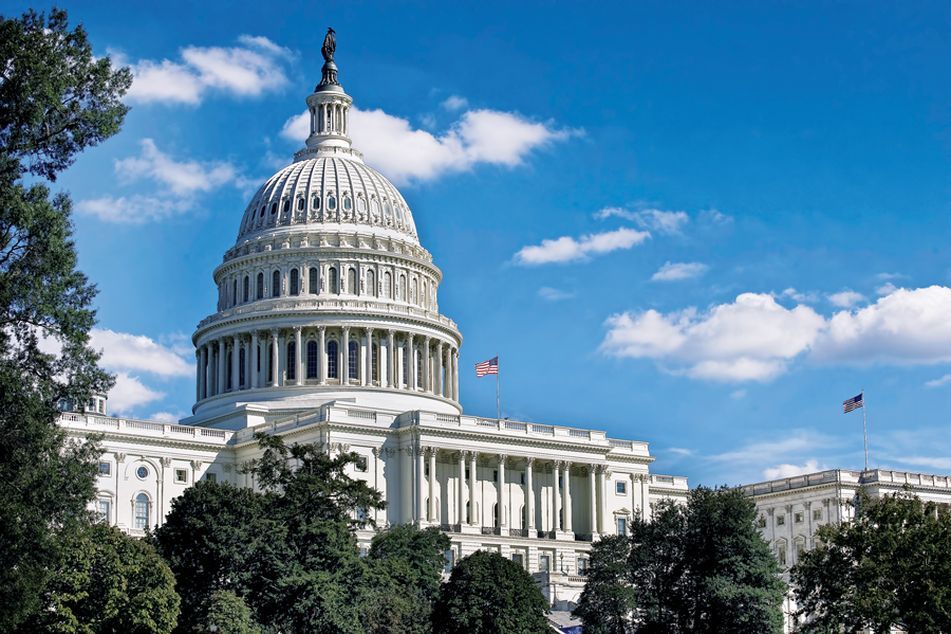Lawmakers re-up bills to end estate tax, usher in e-delivery, increase SEC penalties

Each of the measures failed to get enacted in the previous Congress. The tax bill starts off with just GOP support, while the other two come out of the gate with bipartisan backing.
Bills that would end the estate tax, strengthen SEC enforcement and allow electronic delivery of investment documents are getting another chance on Capitol Hill.
Each of the bills died in the previous Congress because they failed to get enacted. Their congressional champions recently revived them, hoping they will fare better in the new Congress that was seated in January.
AXING ESTATE TAX
Sen. John Thune, R-S.D., on Thursday reintroduced the Death Tax Repeal Act, which would permanently end the estate tax. He dropped the measure in the hopper with 40 co-sponsors, all Republicans. Thune, a member of the Senate Finance Committee and Senate minority whip, said the bill would protect farm and ranch families in his home state.
The legislation faces difficult political terrain again. Democrats control the Senate, which means there’s no guarantee the bill will be considered at the committee level or on the chamber floor. A House version would have a better chance, given the GOP majority there.
But the Family Business Coalition is enthusiastic about the bill’s rollout.
“We reached a new high-water mark this Congress with over 150 groups signing the FBC letter and Senator Thune came out strong with 40 original Senate cosponsors,” Palmer Schoening, FBC chairman and president of Schoening Strategies, wrote in a Friday email to the organization’s members.
MAKING E-DELIVERY THE DEFAULT
Earlier this week, a group of bipartisan House members reintroduced a bill — the Improving Disclosure for Investors Act — that would make electronic delivery the default method of sending regulatory documents to investors. Currently, investors must opt in to e-delivery. The legislation would make e-delivery opt-out.
A similar bill was introduced in December, just before the end of the last Congress. That move laid down a marker for what the bill’s sponsors want to accomplish in the new Congress. The current measure is sponsored by Reps. Bill Huizenga, R-Mich., Jake Auchincloss, D-Mass., Bryan Steil, R-Wisc., and Wiley Nickel, D-N.C.
Financial firms and industry trade associations have been pushing hard for legislation that would require the Securities and Exchange Commission to facilitate e-delivery.
“Public policies that continue to put paper first simply fail to reflect customer preferences and the need for more secure and convenient communications,” Fidelity Investments said in statement. “Electronic delivery allows investors to quickly engage with their accounts online while reducing waste and energy consumption. We look forward to working with Congress to enact eDelivery into law.”
GIVING THE SEC MORE ENFORCEMENT LATITUDE
Another bipartisan bill would give the SEC more latitude to crack down on market malfeasance. On March 17, Sens. Jack Reed, D-R.I., and Chuck Grassley, R-Iowa, introduced the Stronger Enforcement of Civil Penalties Act, which would increase the cap on monetary penalties per violation to $1 million for individuals and $10 million for firms; link the magnitude of penalties to the amount of harm caused by perpetrators; and triple the penalty cap for recidivists who have been found criminally or civilly liable for securities fraud within the last five years.
The senators have introduced the bill in the last several Congresses.
“It’s simple: the SEC needs to get tougher on fraud and this bipartisan bill will enhance the ability of securities regulators to protect investors, deter bad behavior, and punish repeat offenders,” Reed said in a statement. “Investors deserve real protection. The law needs to change to ensure the punishment fits the crime. This bill gives the SEC more tools to demand meaningful accountability from Wall Street.”
Learn more about reprints and licensing for this article.








